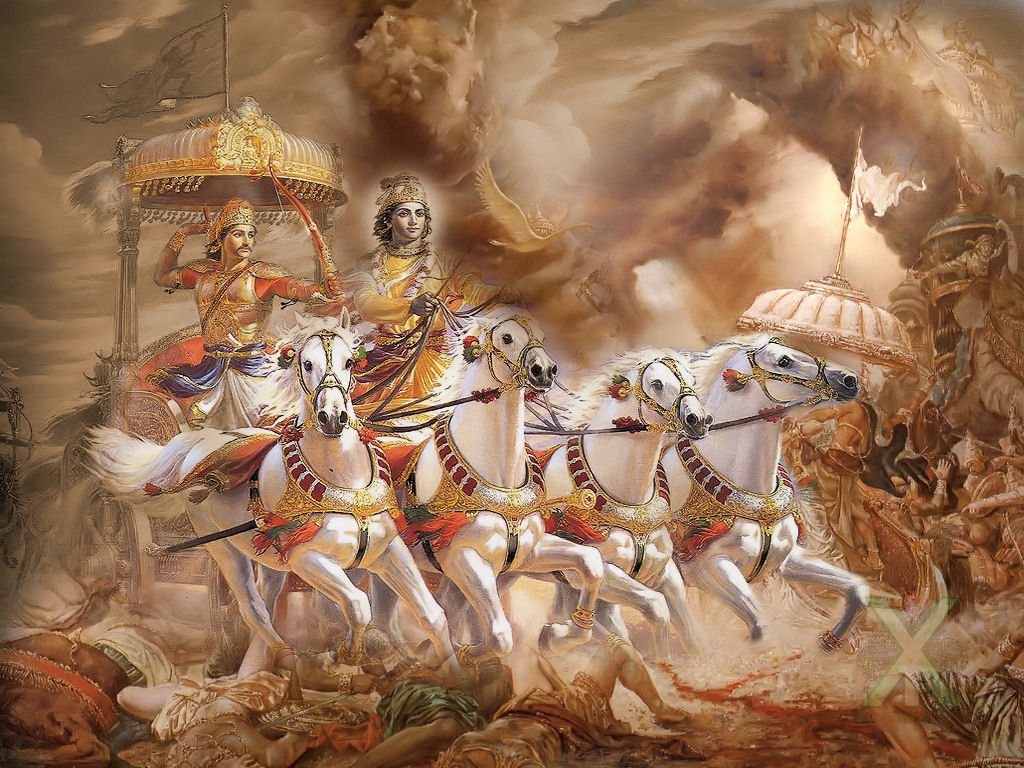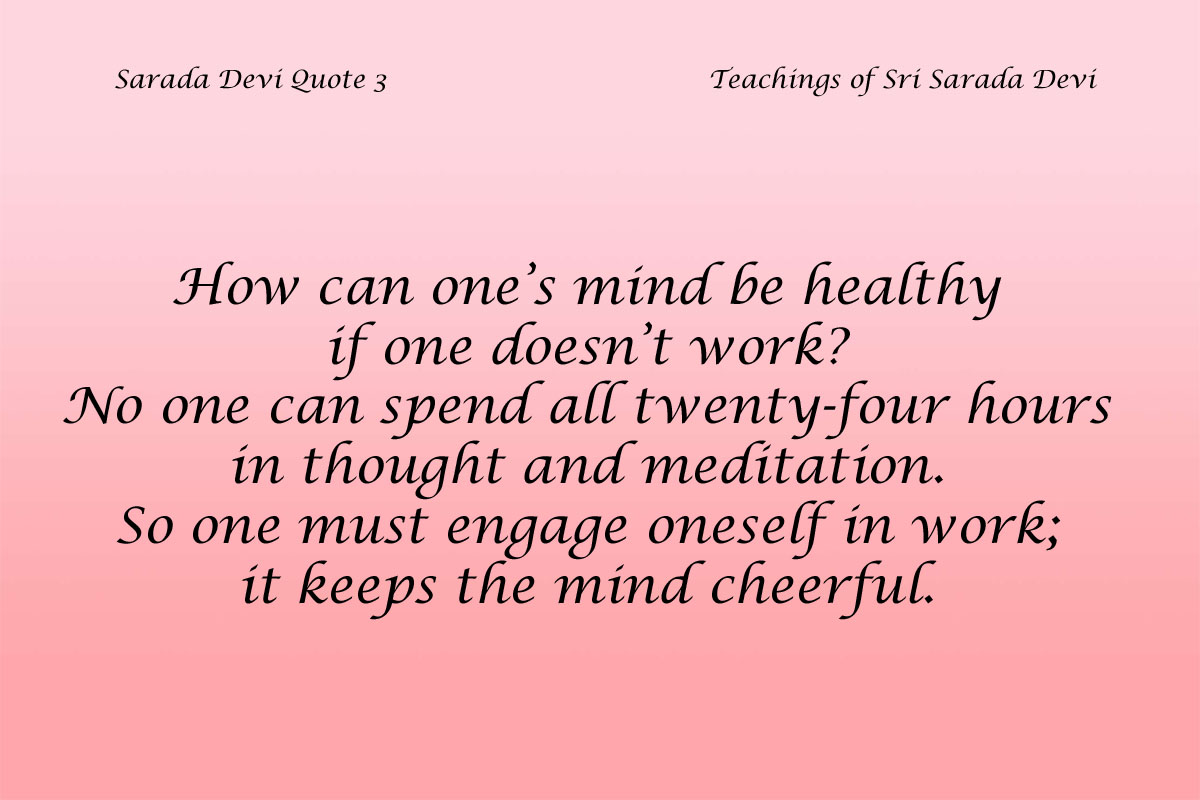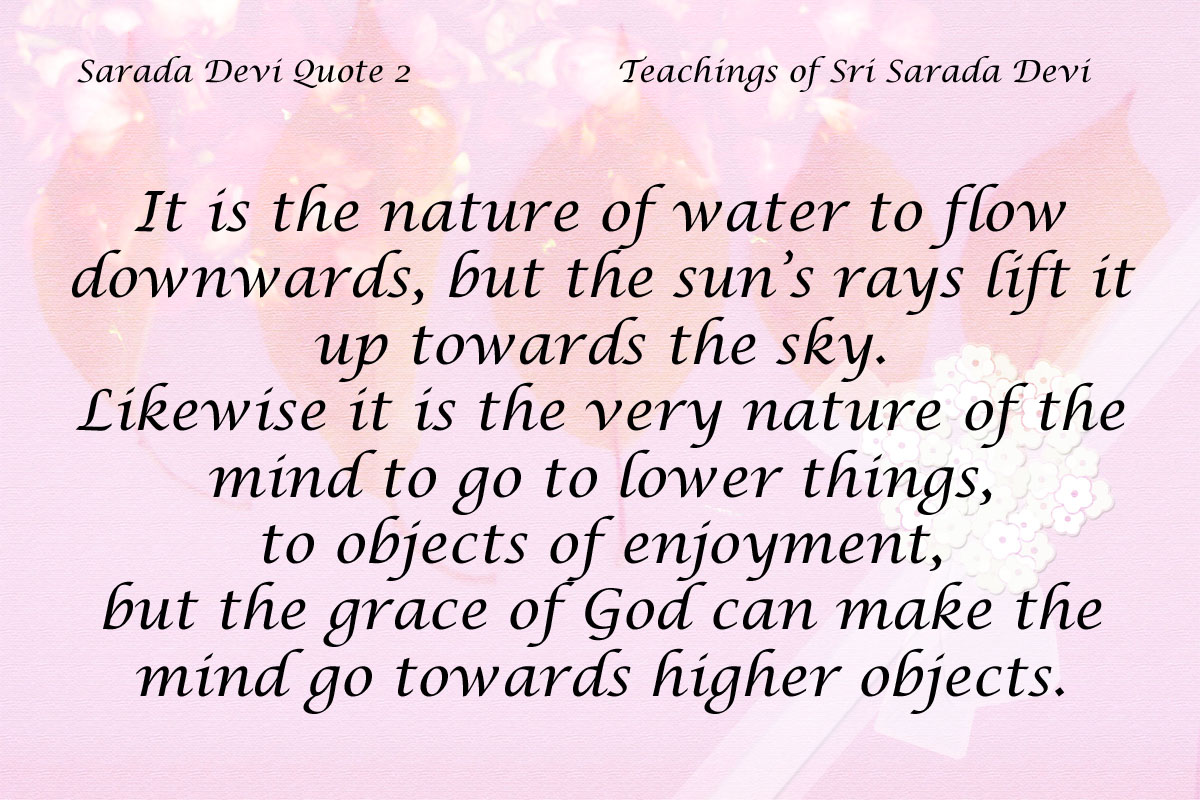Bhagavad Gita Chapter 2 Verses 51 – 60
SANKHYA YOGA
Sanjaya recounts the condition of Arjuna, who was agitated due to delusion of attachment, fear and confusion.
Lord Krishna rebukes Arjuna for his dejection and diffidence, and urges him to fight the war of righteousness. After failing to convince Sri Krishna through his seemingly wise thoughts, Arjuna realizes his helplessness and surrenders himself completely to the Lord, seeking His guidance to get over the conflicts existing in his mind.
Lord Krishna takes pity on Arjuna and proceeds to enlighten Arjuna by various means, offering profound knowledge and practical techniques.
51.
Karmajam buddhiyuktaa hi phalam tyaktwaa maneeshinah;
Janmabandha vinirmuktaah padam gacchantyanaamayam.
51.
The wise, possessed of knowledge, having abandoned the fruits of their actions, and being freed from the fetters of birth, go to the place which is beyond all evil.
52.
Yadaa te mohakalilam buddhir vyatitarishyati;
Tadaa gantaasi nirvedam shrotavyasya shrutasya cha.
52.
When your intellect crosses beyond the mire of delusion, then you shall attain to indifference as to what has been heard and what has yet to be heard.
53.
Shrutivipratipannaa te yadaa sthaasyati nishchalaa;
Samaadhaavachalaa buddhistadaa yogam avaapsyasi.
53.
When your intellect, perplexed by what you have heard, shall stand immovable and steady in the Self, then you shall attain Self-realisation.
54.Arjuna Uvaacha: Sthitaprajnasya kaa bhaashaa samaadhisthasya keshava;
Sthitadheeh kim prabhaasheta kimaaseeta vrajeta kim.
54. Arjuna said:
What, O Krishna, is the description of him who has steady wisdom and is merged in the Superconscious State? How does one of steady wisdom speak? How does he sit? How does he walk?
55.
Sri Bhagavaan Uvaacha: Prajahaati yadaa kaamaan sarvaan paartha manogataan;
Aatmanyevaatmanaa tushtah sthitaprajnastadochyate.
55.
The Blessed Lord said:
When a man completely casts off, Oh Arjuna, all the desires of the mind and is satisfied in the Self by the Self, then is he said to be one of steady wisdom!
56.
Duhkheshwanudwignamanaah sukheshu vigatasprihah;
Veetaraagabhayakrodhah sthitadheer munir uchyate.
56.
He whose mind is not shaken by adversity, who does not hanker after pleasures, and who is free from attachment, fear and anger, is called a sage of steady wisdom.
57.
Yah sarvatraanabhisnehas tattat praapya shubhaashubham;
Naabhinandati na dweshti tasya prajnaa pratishthitaa.
57.
He who is everywhere without attachment, on meeting with anything good or bad, who neither rejoices nor hates, his wisdom is fixed.
58.
Yadaa samharate chaayam kurmo’ngaaneeva sarvashah;
Indriyaaneendriyaarthebhyas tasya prajnaa pratishthitaa.
58.
When, like the tortoise which withdraws its limbs on all sides, he withdraws his senses from the sense-objects, then his wisdom becomes steady.
59.
Vishayaa vinivartante niraahaarasya dehinah;
Rasavarjam raso’pyasya param drishtwaa nivartate.
59.
The objects of the senses turn away from the abstinent man, leaving the longing (behind); but his longing also turns away on seeing the Supreme.
60.
Yatato hyapi kaunteya purushasya vipashchitah;
Indriyaani pramaatheeni haranti prasabham manah.
60.
The turbulent senses, Oh Arjuna, do violently carry away the mind of a wise man though he be striving (to control them)!








